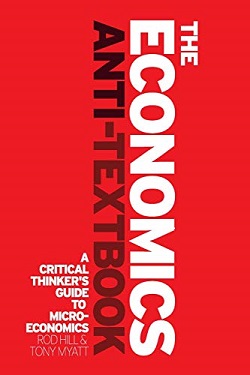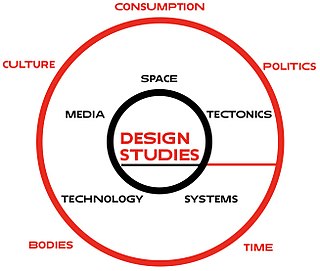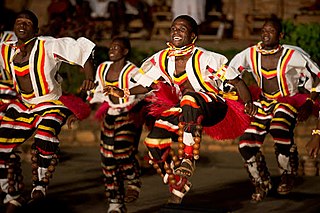Related Research Articles
Anarchism is a political philosophy and movement that is against all forms of authority and seeks to abolish the institutions it claims maintain unnecessary coercion and hierarchy, typically including the state and capitalism. Anarchism advocates for the replacement of the state with stateless societies and voluntary free associations. As a historically left-wing movement, this reading of anarchism is placed on the farthest left of the political spectrum, usually described as the libertarian wing of the socialist movement.
Critical psychology is a perspective on psychology that draws extensively on critical theory. Critical psychology challenges the assumptions, theories and methods of mainstream psychology and attempts to apply psychological understandings in different ways, often looking towards social change as a means of preventing and treating psychopathology.
Economics is a social science that studies the production, distribution, and consumption of goods and services.

Education is the transmission of knowledge, skills, and character traits and manifests in various forms. Formal education occurs within a structured institutional framework, such as public schools, following a curriculum. Non-formal education also follows a structured approach but occurs outside the formal schooling system, while informal education entails unstructured learning through daily experiences. Formal and non-formal education are categorized into levels, including early childhood education, primary education, secondary education, and tertiary education. Other classifications focus on teaching methods, such as teacher-centered and student-centered education, and on subjects, such as science education, language education, and physical education. Additionally, the term "education" can denote the mental states and qualities of educated individuals and the academic field studying educational phenomena.
The philosophy of education is the branch of applied philosophy that investigates the nature of education as well as its aims and problems. It also examines the concepts and presuppositions of education theories. It is an interdisciplinary field that draws inspiration from various disciplines both within and outside philosophy, like ethics, political philosophy, psychology, and sociology. Many of its theories focus specifically on education in schools but it also encompasses other forms of education. Its theories are often divided into descriptive theories, which provide a value-neutral description of what education is, and normative theories, which investigate how education should be practiced.
Cultural bias is the interpretation and judgment of phenomena by the standards of one's own culture. It is sometimes considered a problem central to social and human sciences, such as economics, psychology, anthropology, and sociology. Some practitioners of these fields have attempted to develop methods and theories to compensate for or eliminate cultural bias.
Gender studies is an interdisciplinary academic field devoted to analysing gender identity and gendered representation. Gender studies originated in the field of women's studies, concerning women, feminism, gender, and politics. The field now overlaps with queer studies and men's studies. Its rise to prominence, especially in Western universities after 1990, coincided with the rise of deconstruction.
Queer theory is a field of post-structuralist critical theory that emerged in the early 1990s out of queer studies and women's studies. The term "queer theory" can have various meanings depending upon its usage, but has been broadly associated with the study and theorization of gender and sexual practices that exist outside of heterosexuality, and which challenge the notion that heterosexual desire is "normal". Following social constructivist developments in sociology, queer theorists are often critical of what they consider essentialist views of sexuality and gender. Instead, they study those concepts as social and cultural phenomena, often through an analysis of the categories, binaries, and language in which they are said to be portrayed.
Behavioral economics is the study of the psychological, cognitive, emotional, cultural and social factors involved in the decisions of individuals or institutions, and how these decisions deviate from those implied by classical economic theory.
Women's studies is an academic field that draws on feminist and interdisciplinary methods to place women's lives and experiences at the center of study, while examining social and cultural constructs of gender; systems of privilege and oppression; and the relationships between power and gender as they intersect with other identities and social locations such as race, sexual orientation, socio-economic class, and disability.
Experimental economics is the application of experimental methods to study economic questions. Data collected in experiments are used to estimate effect size, test the validity of economic theories, and illuminate market mechanisms. Economic experiments usually use cash to motivate subjects, in order to mimic real-world incentives. Experiments are used to help understand how and why markets and other exchange systems function as they do. Experimental economics have also expanded to understand institutions and the law.
Organization studies is the academic field interested in a collective activity, and how it relates to organization, organizing, and management. It is "the examination of how individuals construct organizational structures, processes, and practices and how these, in turn, shape social relations and create institutions that ultimately influence people".

Afrocentricity is an academic theory and approach to scholarship that seeks to center the experiences and peoples of Africa and the African diaspora within their own historical, cultural, and sociological contexts. First developed as a systematized methodology by Molefi Kete Asante in 1980, he drew inspiration from a number of African and African diaspora intellectuals including Cheikh Anta Diop, George James, Harold Cruse, Ida B. Wells, Langston Hughes, Malcolm X, Marcus Garvey, and W. E. B. Du Bois. The Temple Circle, also known as the Temple School of Thought, Temple Circle of Afrocentricity, or Temple School of Afrocentricity, was an early group of Africologists during the late 1980s and early 1990s that helped to further develop Afrocentricity, which is based on concepts of agency, centeredness, location, and orientation.

Raewyn Connell, usually cited as R. W. Connell, is an Australian sociologist and Professor Emerita at the University of Sydney, mainly known for co-founding the field of masculinity studies and coining the concept of hegemonic masculinity, as well as for her work on Southern theory.

George Sebastian Rousseau is an American cultural historian resident in the United Kingdom.

Carsten Herrmann-Pillath is a German economist, sinologist, and philosopher of economics. He is the professor of Economics and Permanent Fellow at the Max Weber Centre for Advanced Cultural and Social Studies, Erfurt University, Germany.

The Economics Anti-Textbook is both an introduction to, and critique of the typical approaches to economics teaching, written by Roderick Hill and Tony Myatt in 2010. The main thrust of the authors' argument is that basic economics courses, being centered on models of perfect competition, are biased towards the support of free market or laissez-faire ideologies, and neglect to mention conflicting evidence or give sufficient coverage of alternative descriptive models. This book has been updated and superseded by The Microeconomics Anti-Textbook and The Macroeconomics Anti-Textbook, by the same authors.

Design studies can refer to any design-oriented studies but is more formally an academic discipline or field of study that pursues, through both theoretical and practical modes of inquiry, a critical understanding of design practice and its effects in society.
Vegan studies or vegan theory is the study of veganism, within the humanities and social sciences, as an identity and ideology, and the exploration of its depiction in literature, the arts, popular culture, and the media. In a narrower use of the term, vegan studies seek to establish veganism as a "mode of thinking and writing" and a "means of critique".

Orunyege-Ntogoro is a traditional dance from the Bunyoro and Tooro kingdoms in western Uganda. It is a courtship dance that involves the use of rattles (ebinyege) and rings (entogoro) to produce rhythmic sounds and movements. The dance is performed by young men and women who seek to attract and impress potential partners for marriage.
References
- ↑ Grever, Maria; Adriaansen, Robbert-Jan (2017). "Historical Culture: A Concept Revisited". Palgrave Handbook of Research in Historical Culture and Education. Palgrave Macmillan UK. pp. 73–89. doi:10.1057/978-1-137-52908-4_4. ISBN 978-1-137-52908-4.